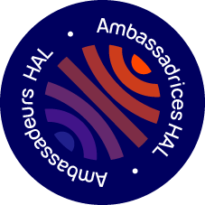
What is the HAL Ambassadors program?
Launched in June 2022, the ‘Ambassadors of HAL’ programme aims to foster dialogue between the CCSD and the scientific community.
The programme aims to:
- To identify and address the problems and needs of the scientific community with regard to HAL, with the aim of improving and developing the service provided by the platform.
- To contribute to progress in open science practices and the use of the HAL platform.
Become a HAL Ambassador
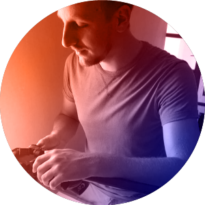
Fabien Bièvre-Perrin
HAL Ambassador
Senior lecturer at the Université de Lorraine, within the HisCAnt-Ma laboratory
Visiting researcher at Centre Jean Bérard
Commitment to Open Science
HAL CV
Antiquipop Frontière·s
HisCAnt-Ma Feminicon
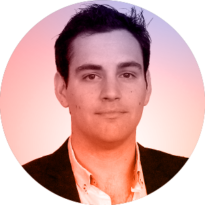
Frédéric Bousefsaf
HAL Ambassador
Associate professor in the Laboratory of Design, Optimization and Modelling of Systems (LCOMS) – Université de Lorraine
Commitment to Open Science
HAL CV
Personal website
LCOMS Lorraine
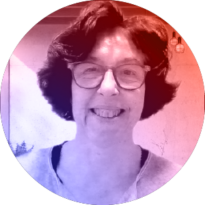
Cristelle Cavalla
HAL Ambassador
Full Professor in Linguistic and applied linguistic, more specifically in French as a Foreign Language. Laboratory DILTEC EA2288, department DFLE at Université Sorbonne Nouvelle.
Commitment to Open Science
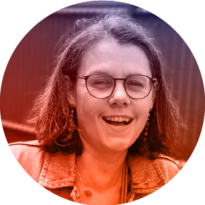
Sophie Charles
HAL Ambassador
Teacher-lecturer, Educational sciences at BONHEURS EA 7517, CY Cergy Paris University
I spent 20 years teaching foreign languages in France and England to secondary and higher education students. I consolidated this experience scientifically by obtaining a Master’s degree in Educational Sciences, Multimedia Pedagogical Engineering and Research in Adult Education at the University of Lille in 2017. I then seized the opportunity offered by the e-FRAN EXAPP_3D project, through a doctoral contract, to continue my commitment to research in the field of education and training sciences in a thesis co-supervised by the BONHEURS Educational Sciences Laboratory and the QUARTZ Laboratory, specialising in complex systems engineering. At the end of this work, I was recruited as a contract teacher-researcher at the BONHEURS laboratory to teach in the ACREDITE and TECHEDU MEEF 4 distance learning masters and to continue my research.
Commitment to Open Science
Access to quality scientific resources is a matter of autonomy and development for scientific laboratories, their members and the institutions that host them. It is also a way of avoiding bias in research, which would otherwise be limited to free journals and publications subscribed to by university libraries. Joining the programme allows me to better support my laboratory in its commitment to open science.
Contact Sophie LinkedIn
HAL CV
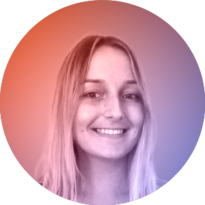
Clara Galliano
HAL Ambassador
Doctoral student in Information and Communication Sciences at IMSIC UTLN-AMU laboratory
100% Temporary Research and Teaching Assistant at UFR Ingémédia of University of Toulon
Commitment to Open Science
Contact Clara
HAL CV ORCID
LinkedIn Twitter
IMSIC
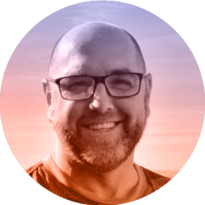
Stéphane Greff
HAL Ambassador
Chemical engineer specializing in Metabolomics by mass spectrometry, Joint Service of the Mediterranean Institute of Biodiversity and Ecology (IMBE) in Marseille
Within IMBE (a multidisciplinary unit composed mainly of biologists and ecologists), I bring my expertise as an analytical chemist to the understanding of the functioning of Mediterranean marine and terrestrial ecosystems in the context of global change, in particular through the study of chemical processes (e.g. specialised metabolism, physiological defence, interactions between organisms). In this context, my activities are organised around two main themes: the administrative and technical management of the Joint Service of Metabolomics and Chemistry of Natural Substances, and my research and training activities.
Commitment to Open Science
It seems essential to me to share the data generated by the researchers and teacher-researchers of our units, so that it can benefit as many people as possible. Continuing my investment in the University of Aix Marseille, which began in 2016, I naturally want to continue to promote open science so that it becomes the standard in the scientific world.
Contact Stéphane
Institutional webpage HAL CV
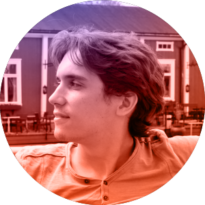
Egon Heuson
HAL Ambassador
Researcher at Centrale Lille
PhD in Organic Chemistry
Commitment to Open Science
Contact Egon
HAL CV ORCID LinkedIn
UCCS Lille Centrale Lille
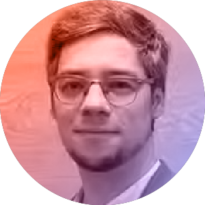
Teva Meyer
HAL Ambassador
Senior lecturer in Geography at the Université de Haute-Alsace
Member of the Centre for Research into Economies, Societies, the Arts and Associated Techniques (CRESAT-UR 3436)
Commitment to Open Science
Contact Teva
HAL CV LinkedIn
Personal website
CRESAT
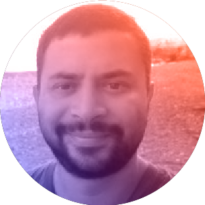
Rafael Munoz-Tamayo
HAL Ambassador
Senior researcher at Systemic Modelling Applied to Ruminants (MoSAR) – Paris-Saclay University, INRAE, AgroParisTech
My research project aims to better understand the link between diet, microbiota and the host in ruminants via mathematical modelling. In particular, we pursue a mechanistic description of the dynamics of feed digestion by taking into account the fermentation pathways catalyzed by the rumen microbiome.
Commitment to Open Science
I am engaged in promoting open science practices. I am leading the international initiative Peer Community In Animal Science, under the umbrella of the parent project Peer Community In. I take part in dissemination and training initiatives to improve open science and help make open science “the new normal”. I am in charge of the Open Science Mission at the Graduate School Biosphera, Université Paris-Saclay.
Read more

Pascal Quach
HAL Ambassador
Doctoral student in Complex systems engineering at the Industrial Engineering Laboratory (EA 2606) at CentraleSupélec
I work on the application of mathematical optimisation methods to improve the resilience of critical infrastructure to climate change. The methods studied are robust optimisation and reinforcement learning. The applications are diverse and can relate to both electrical systems and railway networks.
Commitment to Open Science
Having always been close to the free and open source software community, Open Science seemed obvious to me. As it is essential to provide a set of tools to meet the needs of researchers in Open Science, such as HAL, I wanted to contribute!
Read more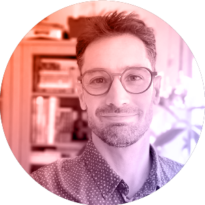
Guillaume Routier
HAL Ambassador
Maitre de Conférences des Universités en sociologie à l’UFR STAPS de l’Université Claude Bernard Lyon 1, chercheur au Laboratoire sur les Vulnérabilités et l’Innovation dans le Sport
“I am a lecturer and researcher in the sociology of sport and physical activity. My work focuses primarily on the physical vulnerabilities (accidents, incidents, injuries) induced by physical activity, as well as on socio-technical innovations and systems designed to prevent the consequences of an accident or to delegate risk management. Currently, this line of research is leading me to examine dietary behaviours in ultra-endurance practices through the lens of their commercial arrangements and the promises of performance, health or sociability they promote.”
Commitment to Open Science
“After discovering and starting to use HAL in 2008, I have recently become more involved as a collections manager in my research lab. My long-term goal is to encourage the social science and humanities (SSH) community within sport, and the sport science community more broadly, to deposit their work on HAL (metadata or full text where possible) in order to make the development of knowledge in this area of research more visible and accessible to both the scholarly community and the general public.”
Contact Guillaume
Institutional webpage CV HAL
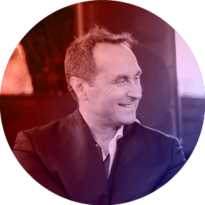
Nicolas Tixier
HAL Ambassador
Professor at the National School of Architecture of Grenoble (ENSAG) in the Theories and Practices of Architectural Design and Urban Planning, director of Cresson and adjunct director of the mixed research unit Ambiances, Architectures, Urbanités—Grenoble Alpes University
Nicolas Tixier is a government licensed (DPLG) architect with a Ph.D and an officially authorized research director. A professor at the National School of Architecture of Grenoble (ENSAG) in the Theories et Practices of Architectural Design and Urban Planning, he also teaches at the Annecy Alpes Art Academy and the Institute of Urban Planning and Alpine Geography, and is a researcher for Cresson. He also works as part of the collective BazarUrbain (winner of the 2007 Young Urban Planner Prize). From 2003 until 2010, he was project manager for the Office of Architectural, Urban, and Landscape Research at the French Ministry of Culture and Communication. He has been the Chair of the Grenoble Cinémathèque since 2009. In 2018, he became Director of Cresson and adjunct director of the UMR mixed research unit Ambiances, Architectures, Urbanités.
The fields he addresses in his research, projects, and teaching concern what we might categorize as a “public thing”, which is not understood as a thing per se, rather as a composition, a stage for action and for society. In his work on the urban and territorial condition, he makes use of the open field of ecology (the ecology of perception, social ecology, and environmental ecology) and the – by nature prospective and retrospective – field of the urban project (urban design and history) to develop methodological tools for approaching a site, producing and sharing its representations, and articulating its potential futures. His current work focuses on the urban transect as a field practice, representation technique, and approach to projects. Between heritage and fiction, he looks at territories and how they are fabricated through ambiances.
Commitment to Open Science
HAL CV LinkedIn
AAU Laboratory
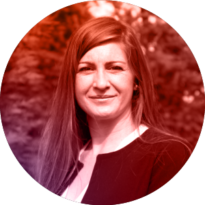
Amandine Wattelier-Bricout
HAL Ambassador
PhD in Indology
Researcher within the ERC-DHARMA project at Humboldt University (Berlin)
Manager of the HAL-GREI collection
Committment to Open science
I am truly convinced of the value of open science, so I pushed the creation of the HAL collection of my research unit, the Indian Studies research group GREI -EA2120. As the manager of this collection and a member of the GREI board, I seek to raise my colleagues’ awareness about the issues and the principles of Open Science, and to establish an Open Science culture among my unit.
By becoming an “HAL Ambassador”, I hope to get HAL widely known and to further the integration of the FAIR principles in my field, as well as to act as a bridge between researchers and the CCSD. Joining the Ambassadors network will also allow me to exchange with my peers from other fields, to enhance and complete my practice by their approach to Open Science.”
HAL CV LinkedIn
Research blog
Trainings offered
ERC-DHARMA GREI-EA2120
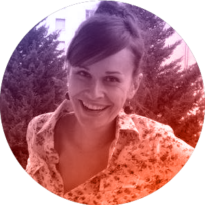
Raphaëlle Yokota
HAL Ambassador
PhD in Japanese studies, Associate researcher at the French Research Institute on East Asia (IFRAE/UMR 8043)
Upon graduating in film studies and Japanese studies, I completed my PhD in Japanese Studies at the National Institute for Oriental Languages and Civilizations (Paris, France), which I defended in June 2022. My thesis examined the work of Japanese independent filmmaker Koreeda Hirokazu and questioned the potential of film in society, notably the notion of alternative point of view. At the crossroads of contemporary Japanese history, film studies and gender studies, my postdoctoral research focuses on women filmmakers in Japan between the feminist second wave in the 1970s and the MeToo years, combining prosopography, historiographical research and film analysis.
As a researcher in area studies, I started my PhD shortly before the beginning of pandemic and, like many of my colleagues, suddenly had limited access to resources. The centralization and free diffusion of scientific documentation then appeared to me as a necessity in order to guarantee an equal access to resources for all researchers, and enable the establishment of a community of researchers.
Read more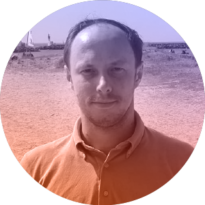
Jonathan Zurbach
HAL Ambassador
Doctoral student in Political Science as well as in Information and Communication Sciences at Avignon University
Member of LBNC (Laboratoire Biens Normes Contrats, EA 3788) and the Agorantic Research Federation (FR 3621)
Commitment to Open Science
Contact Jonathan
HAL CV LinkedIn